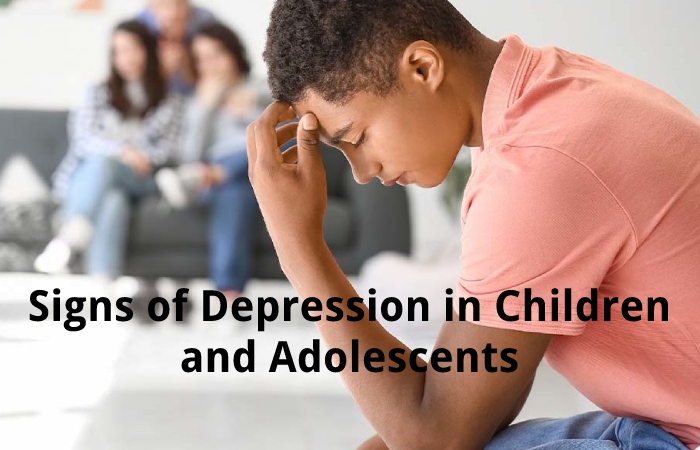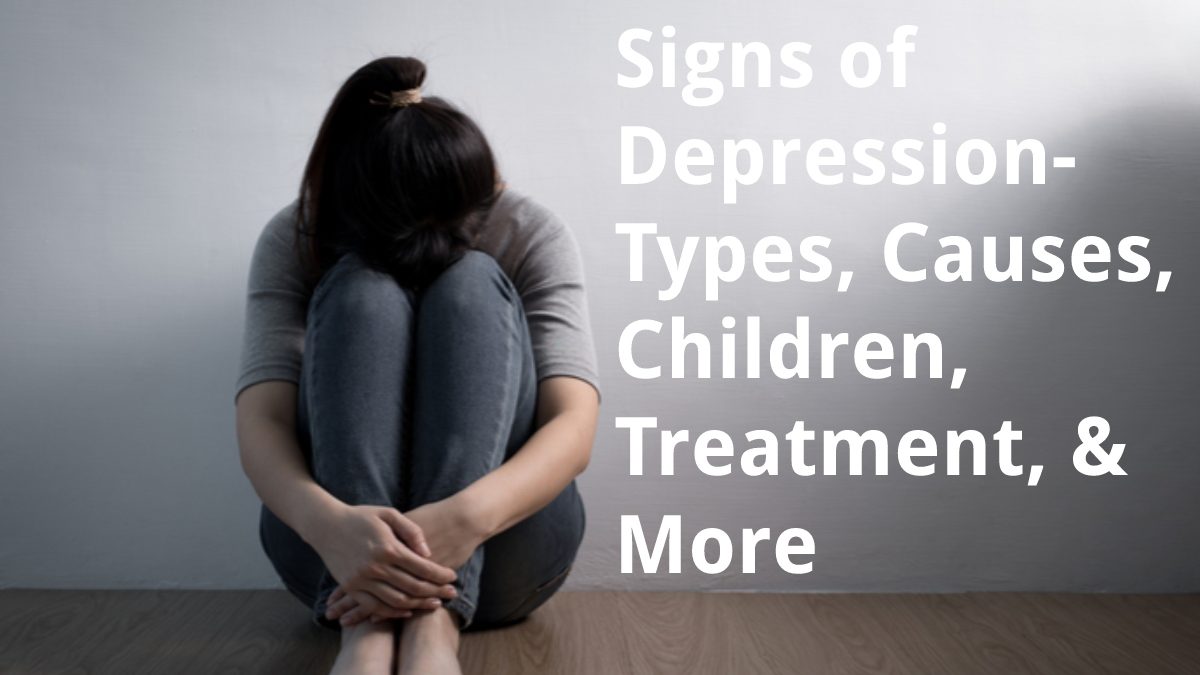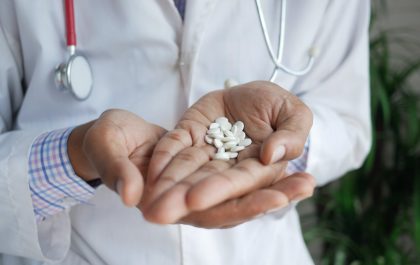Table of Contents
Signs of Depression
Some people with signs of depression may try to hide the signs from others or not realize they have depression. Although the usual symptoms of depression, such as sadness or low mood, can be easily recognized, there may be less apparent symptoms. This article discusses some of the possible hidden signs of depression. However, it is essential to note that some of these signs may also indicate other medical problems.
What is Depression?
Sometimes, people feel sad or down, but these feelings go away quickly. Depression also called “clinical depression” or “major depressive disorder, ” differs. Depression can cause symptoms that affect how you feel, think, and daily coordinate activities like sleeping, eating or working. It is a disease that can touch anyone, regardless of age, race, income, culture, or educational level. Research suggests that genetic, biological, environmental, and psychological issues play a role in depression.
What are the Different Types of Signs of Depression?
Two of the common types of depression are:
- Major depression involves symptoms of depression most of the time for at least two weeks. These symptoms interfere with the ability to work, sleep, study, and eat.
- Persistent depressive disorder (dysthymia) often includes less severe depressive symptoms that last much longer, usually for at least two years.
Other forms of depression include the following:
- Perinatal depression occurs when a woman suffers from major depression during pregnancy or after childbirth (postpartum depression).
- Seasonal affective disorder comes and goes with the seasons, usually beginning in late fall or early winter and disappearing in spring and summer.
- Depression with symptoms of psychosis is a severe form of depression in which a person also shows signs of psychosis, such as having fixed and disturbing false beliefs (delusions) or hearing or seeing things that others cannot hear or see (hallucinations).
People with a diagnosis of bipolar disorder (previously called manic depression or manic-depressive illness) also suffer from depression.
What are the Symptoms and Signs of Depression?
Common symptoms of depression include the following:
- persistent feelings of sadness, anxiety, or “emptiness”;
- feelings of hopelessness or pessimism;
- feelings of irritability, frustration, or restlessness;
- feelings of guilt, worthlessness, or helplessness;
- loss of interest or pleasure in actions and hobbies;
- tiredness decreases energy or emotion slowed down;
- trouble concentrating, remembering, or making decisions;
- trouble sleeping, waking up early in the morning, or sleeping too much;
- unplanned changes in appetite or weight;
- aches and pains, headache, cramps, or digestive problems with no apparent physical cause or that are not relieved or treated;
- suicide attempts or thoughts around death or suicide.
Causes and Signs of Depression
Scientists still don’t know the careful cause of depression. However, many experts believe that several factors play a role in its onset, including:
Genetics: Depression can be hereditary. Having a close family member with the condition can increase a person’s risk of developing it.
Biological and biochemical differences: Physical changes or chemical inequities in the brain can contribute to despair.
Hormones: Hormonal vicissitudes or imbalances in the body can cause or trigger unhappiness. For example, many women experience postnatal depression after giving birth.
Trauma or stress: Periods of high pressure, traumatic events, or significant life changes can trigger an episode of depression in some people.
Personality characteristics: Low self-esteem or pessimism, for example, can increase the risk of depression.
Other illnesses: Having another cerebral or physical health disorder or taking certain medications can increase your risk of depression.
Signs of Depression in Children and Adolescents

For younger people, it can be complicated to talk about depression. Symptoms may be different in children and adolescents. That’s why adults need to know what signs to watch out for:
- Difficulty concentrating or drop in grades
- Frequent conflicts at school
- A constant state of low mood, negativity, or irritability
- drug or alcohol use
- Conversations about suicide in person or on social media
- Signs of self-harm (cuts, burns, etc.)
- Social isolation, rejection or loss of friends
- Conversations or attempts to run away from home
- Physical symptoms include headache, stomach pain, or changes in appetite.
How is Depression Treatment?
Treatment of depression usually includes medication, psychotherapy, or both. If these treatments don’t lessen symptoms, another treatment option may be brain stimulation therapy. In milder cases of depression, treatment may begin with psychotherapy alone, with medication added if the person continues to have symptoms. For moderate to severe depression, many mental health professionals recommend a combination of medication and therapy early in treatment.
Medicines
Antidepressants are medications that are often used to treat depression. However, it takes some time for them to work, usually 4 to 8 weeks, and symptoms such as trouble sleeping, eating, or concentrating often improve before mood improves. Therefore, it’s important to give medications a chance before deciding whether they work.
Psychotherapy
Psychotherapy (also called “talk therapy” or “counselling”) teaches people with depression new ways of thinking and behaving and also helps change habits that contribute to depression. In most cases, psychotherapy sessions are conducted by a licensed and trained mental health professional, either individually or with others in a group setting. Two effective psychotherapies for treating depression are cognitive behavioural therapy and interpersonal therapy. In addition, limited-time use of older forms of psychotherapy, such as dynamic therapy, may also help some people with depression.
Brain Stimulation Therapy
Brain stimulation therapy, which involves activating or inhibiting the brain directly with electricity or magnetic waves, is another option for some people when other treatments for depression have not been effective. Typical forms of brain stimulation therapy include electroconvulsive therapy and repetitive transcranial magnetic stimulation. Other brain stimulation therapies are more recent and, in some cases, still experimental.
What to do if a Precious one has Hidden Depression?
If a loved one seems to have signs of hidden depression, try talking to them about their symptoms and other support and advice without judging.
This may include:
- encourage you to seek treatment
- offer to go with him to appointments
- plan enjoyable activities together
- exercise together
- encouraging him to socialize with other people.
People who care for others with depression must also practice good self-care to protect their mental well-being.
How to get Help for Depression?
People with symptoms of depression should consider seeking help from a loved one or a professional, such as a doctor or psychotherapist.
The ADAA website also provides helpful resources for people with mental health conditions and mood disorders.
suicide prevention
If you know someone who is at instant risk of self-harm, suicide, or harm to another person:
- Call 911 or your local emergency number.
- Stay with the person until professional help arrives.
- Remove any weapons, medications, or other potentially harmful objects.
- Listen to the person without judging them.
- If you or a big shot you know is taking suicidal thoughts, a prevention hotline can help. The National Suicide Prevention Network is available 24 hours a day by calling 1-888-628-9454.
Conclusion
It is Depression is a disease that touches the mind and body, producing changes in sleep, appetite and perception of ourselves and the world. Depression is neither a symbol of weakness nor a personal choice. Depression goes beyond everyday suffering: if you are depressed, you will have some signs and symptoms that can last for weeks or even months and years if the proper treatment.
Also Read: What is Increase in Height After 21? – Factors, Advantages, & More
Related posts
Featured Posts
Nissan 350z for Sale – Sporty, Light, Capable, Fun, and Attainable
Nissan 350Z for Sale The Nissan 350Z for sale is a revolution and nostalgia at the same time. It came…
What is Chronic Weight Loss Medication? How it Works and What it’s For?
Recently rising obesity rates have led to the popularity of more weight loss interventions. From various trendy exercises to strict…



